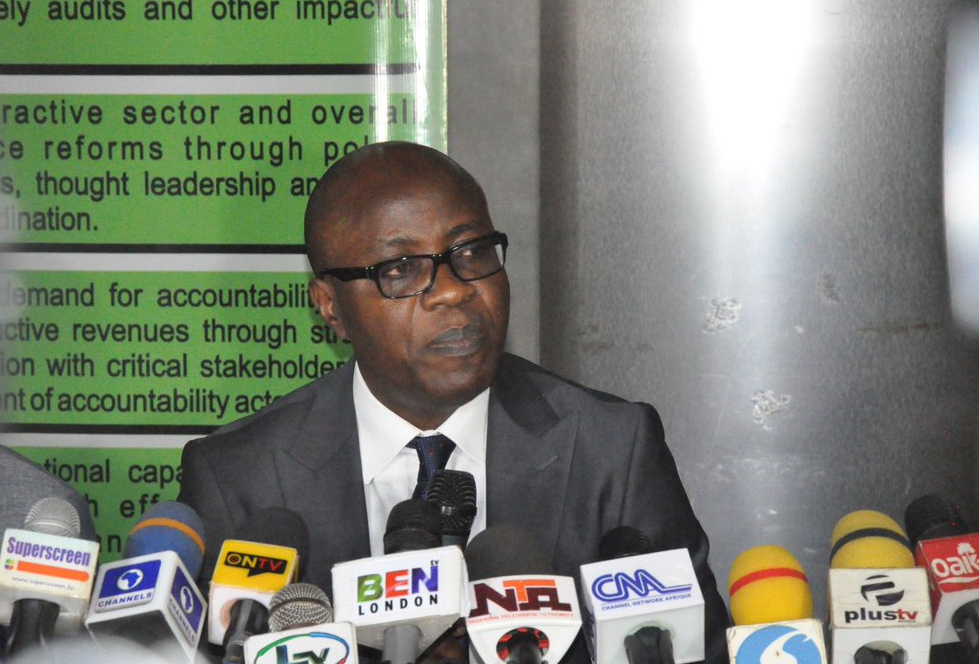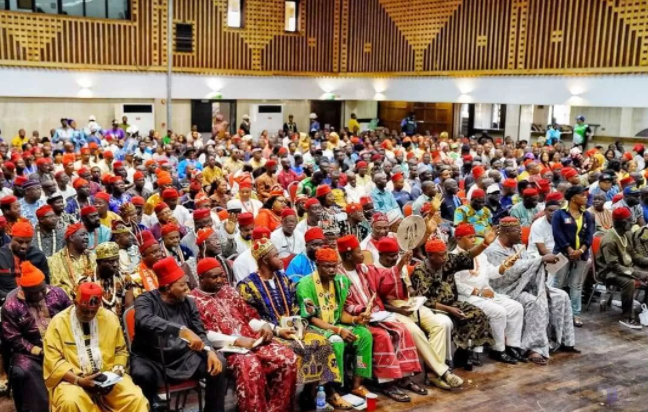Agora Policy, an Abuja-based think tank, says Nigeria’s impressive array of transparency and accountability measures has not made the desired dent in governance and development in the country.
In its latest report titled ‘Imperative of Strengthening Nigeria’s Transparency and Accountability Measures’, the organisation attributed the inefficacy of the accountability measures to subsisting gaps in legislation, capacity, values and resourcing.
“Whether now or in the future, Nigeria needs more transparency and accountability, not less,” the report reads.
“As Nigeria prepares for a new government, a stocktaking of the transparency and accountability measures is desirable to ensure that the zeal for anticorruption is sustained and that the prevailing measures are fit for purpose, and further strengthened and institutionalised.”
Advertisement
In the report, Agora Policy examined 16 transparency and accountability mechanisms within four clusters: norms and values, public financial management, open disclosure, and sanctions.
The measures assessed include asset declaration, freedom of information, public procurement, whistle-blower policy, annual and routine audits, government’s e-payment platforms such as Integrated Personnel and Payroll Information (IPPIS) and Government Integrated Financial Management Information System (GIFMIS).
Others include the publication of subnational transfers, disclosure of extractive sector revenues and beneficial ownership to prosecution and asset recovery.
Advertisement
“Most of the interventions have been made since the return to civil rule in 1999, and some of them have yielded some results and milestones,” the report adds.
“Despite the achievements, the problem of transparency and accountability remains.
“The assumption that transparency and accountability automatically lead to good governance did not take into account attendant challenges such as social behaviours in the forms of resistance and sabotage.”
To fix the challenge of transparency and accountability, the think tank founded by Waziri Adio, former executive secretary of Nigeria Extractive Industries Transparency Initiative (NEITI), made some recommendations.
Advertisement
Some of the recommendations include:
BUHARI SHOULD SIGN NEWLY PASSED AUDIT BILL
Agora Policy said the office of the auditor-general of the federation should be strengthened through improved staffing and better remuneration for members of staff of the agency. Also, prompt presidential assent to the newly passed audit bill was recommended.
“President Muhammadu Buhari should sign the Federal Audit Service Bill into law before he leaves office. The bill, which was passed by the National Assembly on 29 March 2023, repeals the Audit Ordinance of 1956,” the organisation said.
Advertisement
“The bill strengthens the operations and independence of the Office of the Auditor General of the Federation (OAuGF).
“It aligns with the present times and with global best practices and it enhances the utility of auditing as a powerful transparency and accountability mechanism.”
Advertisement
PASSAGE OF WHISTLEBLOWING LAW
Agora Policy called for the passage of laws to back up the whistleblower policy and the open treasury portal to address grey areas and make them more binding and effective.
Advertisement
ASSETS DECLARED BY PUBLIC OFFICIALS SHOULD BE MADE PUBLIC
The report also called for the amendment of Paragraph 3 (c) of the Third Schedule of the 1999 Constitution to ensure that assets disclosed by public officials can be made public by the Code of Conduct Bureau (CCB).
Advertisement
It also recommended improved funding for CCB to be better positioned to discharge its important mandate, including the verification of assets declared by millions of public servants across the three tiers of government.
“Verification of declared assets to the CCB to ascertain the veracity of claims by the declarant should be considered an essential component of the quest to strengthen transparency and accountability,” the organisation said.
“Ideally, verification of declared assets should leverage complementary efforts of members of the public under a potent whistleblowing and whistleblower protection regime.”
CONTINUOUS INVESTMENT IN TECHNOLOGY AND TRAINING
The organisation advocated for greater investment in capacity building and technology across board in the fight against corruption in Nigeria.
“Technology remains the greatest enabler of transparency and accountability,” Agora Policy said.
“Thus, rather than contemplate the idea of going back on technology-driven platforms such as GIFMIS, IPPIS and the rest, the focus should be on how to improve them.”
CAPACITY DEVELOPMENT SHOULD BE PRIORITISED AS CROSS-CUTTING
One of the solutions recommended by Agora Policy was capacity building to bridge gaps in technical knowledge and skills for anti-corruption agencies.
This, it said, will go a long way to enhance the effectiveness of the relevant personnel in these institutions and, ultimately, strengthen transparency and accountability.
STAFF OF ANTI-CORRUPTION AGENCIES SHOULD GET BACKGROUND CHECKS
Agora Policy asked the federal government to undertake rigorous background checks on the boards, leadership and staff of institutions with anti-corruption mandates and institute adequate safeguards on the exercise of oversight powers.
“These measures are needed to ensure that there is a symmetry between the mandates of these critical institutions and the values of those who work in and lead them, that there are measures for ‘watching the watchdogs’, and that the anti-corruption institutions are not undermined by the same ills that they were set up to tackle,” the organisation said.
NATIONAL CAMPAIGN ON VALUE REORIENTATION
Agora Policy recommended that the government launch a comprehensive and well-thought-out national value reorientation programme that creatively seeks to change the dysfunctional values, attitudes, and narratives that wittingly and unwittingly enable public corruption.
Add a comment






